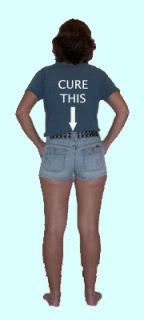That Must Be So Hard
I know when I tell people that my sons have autism, the look of pity on their face and they say "That must be so hard."
Reading that comment, I was reminded of a conversation that I had almost 25 years ago with an older white woman, who was generally a nice and well-meaning person and who thought of herself as tolerant, but who—like many of her generation—had more racial preconceptions than she realized. We were talking about an African-American woman who had a light complexion, and I mentioned that her children all looked very much like her husband, whose skin was much darker.
I wasn't thinking about it in racial terms and just meant to comment on the children's close resemblance to their father; but much to my surprise, the response that I got—complete with a pitying sigh—was "That must be hard for her." Not sure what to say to that, I just stammered something to the effect that I thought she was happy to have three healthy children, no matter what color they were.
Times have changed, and it's been quite a while since I heard anyone suggest that a person of color must surely be disappointed when his or her child turns out to be darker. Most people nowadays would understand that this is a prejudiced and mistaken assumption that shows disrespect for both the parent and the child; however, it seems that very few people realize the offensiveness of making similar statements about parents of autistic children.
Granted, there are some autistic kids who did not inherit their autistic traits from a parent; but familial inheritance accounts for a significant percentage of the autistic population. (I suspect that the actual percentage is considerably higher than the genetic studies indicate, as it's likely that many multigenerational autistic families are choosing not to take part in genetic studies because of the possibility that the research could be used for eugenic purposes.)
I don't mean to suggest that pity is ever desirable, because it's not; pity always objectifies and dehumanizes those who are on the receiving end of it. Still, it strikes me as particularly obnoxious when our society is so ignorant—and so intolerant of diversity—that many parents who are autistic themselves, or close to it, are being told that their lives "must be so hard" because their children are like them.
Labels: families with autistic children, pity

